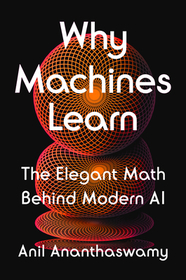
A Protocol-theoretic Framework for the Logic of Epistemic Norms
Series: Synthese Library; 467;
- Publisher's listprice EUR 106.99
-
44 374 Ft (42 261 Ft + 5% VAT)
The price is estimated because at the time of ordering we do not know what conversion rates will apply to HUF / product currency when the book arrives. In case HUF is weaker, the price increases slightly, in case HUF is stronger, the price goes lower slightly.
- Discount 20% (cc. 8 875 Ft off)
- Discounted price 35 499 Ft (33 809 Ft + 5% VAT)
Subcribe now and take benefit of a favourable price.
Subscribe
44 374 Ft

Availability
printed on demand
Why don't you give exact delivery time?
Delivery time is estimated on our previous experiences. We give estimations only, because we order from outside Hungary, and the delivery time mainly depends on how quickly the publisher supplies the book. Faster or slower deliveries both happen, but we do our best to supply as quickly as possible.
Product details:
- Edition number 1st ed. 2022
- Publisher Springer International Publishing
- Date of Publication 28 September 2023
- Number of Volumes 1 pieces, Book
- ISBN 9783031085994
- Binding Paperback
- See also 9783031085963
- No. of pages526 pages
- Size 235x155 mm
- Weight 831 g
- Language English
- Illustrations XXI, 526 p. 1 illus. Illustrations, black & white 499
Categories
Long description:
This book defines a logical system called the Protocol-theoretic Logic of Epistemic Norms (PLEN), it develops PLEN into a formal framework for representing and reasoning about epistemic norms, and it shows that PLEN is theoretically interesting and useful with regard to the aims of such a framework. In order to motivate the project, the author defends an account of epistemic norms called epistemic proceduralism. The core of this view is the idea that, in virtue of their indispensable, regulative role in cognitive life, epistemic norms are closely intertwined with procedural rules that restrict epistemic actions, procedures, and processes. The resulting organizing principle of the book is that epistemic norms are protocols for epistemic planning and control.
The core of the book is developing PLEN, which is essentially a novel variant of propositional dynamic logic (PDL) distinguished by more or less elaborate revisions of PDL’s syntax and semantics. The syntax encodes the procedural content of epistemic norms by means of the well-known protocol or program constructions of dynamic and epistemic logics. It then provides a novel language of operators on protocols, including a range of unique protocol equivalence relations, syntactic operations on protocols, and various procedural relations among protocols in addition to the standard dynamic (modal) operators of PDL. The semantics of the system then interprets protocol expressions and expressions embedding protocols over a class of directed multigraph-like structures rather than the standard labeled transition systems or modal frames. The intent of the system is to better represent epistemic dynamics, build a logic of protocols atop it, and then show that the resulting logic of protocols is useful as a logical framework for epistemic norms. The resulting theory of epistemic norms centers on notions of norm equivalence derived from theories of process equivalence familiar from the study of dynamic and modal logics. The canonical account of protocol equivalence in PLEN turns out to possess a number of interesting formal features, including satisfaction of important conditions on hyperintensional equivalence, a matter of recently recognized importance in the logic of norms, generally.
To show that the system is interesting and useful as a framework for representing and reasoning about epistemic norms, the author applies the logical system to the analysis of epistemic deontic operators, and, partly on the basis of this, establishes representation theorems linking protocols to the action-guiding content of epistemic norms. The protocol-theoretic logic of epistemic norms is then shown to almost immediately validate the main principles of epistemic proceduralism.
MoreTable of Contents:
Part I. Epistemic Proceduralism. Chapter 1. Epistemic Proceduralism Stated.- Chapter 2. Epistemic Proceduralism Defended I.- Chapter 3. Epistemic Proceduralism Defended II.- Part II. Developing PLEN. Chapter 4. PLEN: A Protocol-theoretic Logic of Epistemic Norms.- Chapter 5. The Revised PLEN Framework I: Protocol Equivalence (Useful Lemmata).- Chapter 6. The Revised PLEN Framework II: Protocol Equivalence (Core Results).- Chapter 7. The Revised PLEN Framework III: An Adaptable Protocol Logic.- Part III. Applying PLEN. Chapter 8. Philosophical Results I: A Protocol-theoretic Logic of Epistemic Deontics, Procedural Knowledge, and Norm Application.- Chapter 9. Philosophical Results II: Representation Theorems and Rule-Following.- Chapter 10. Philosophical Results III: Formalizing Epistemic Proceduralism.
More











